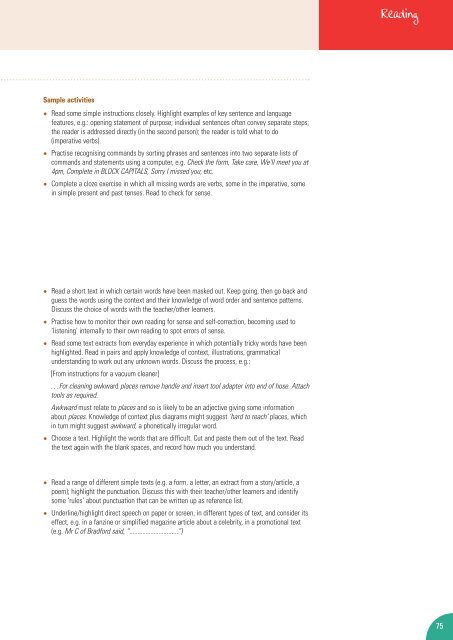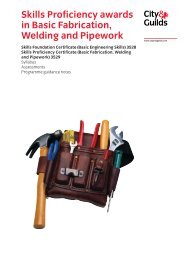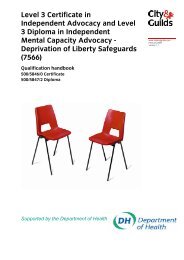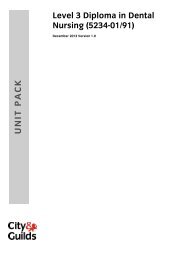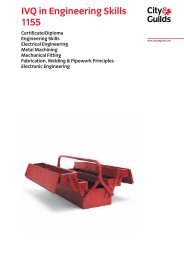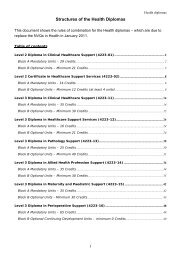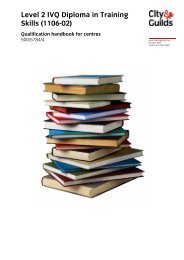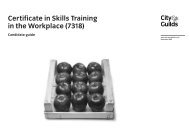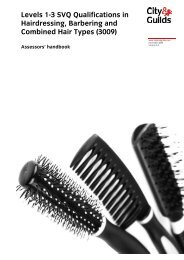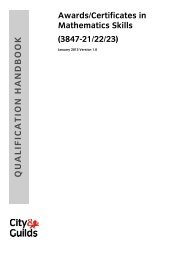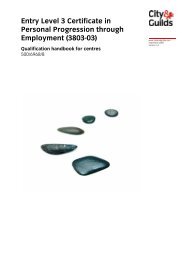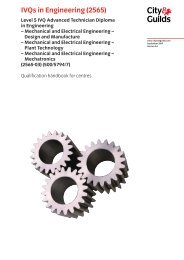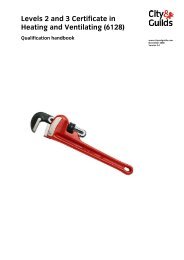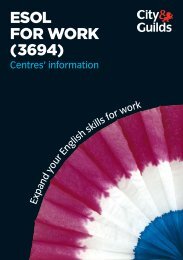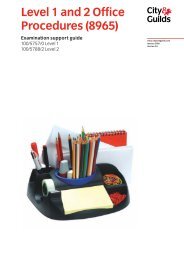Adult Literacy Core Curriculum - Nationally developed Skills for Life ...
Adult Literacy Core Curriculum - Nationally developed Skills for Life ...
Adult Literacy Core Curriculum - Nationally developed Skills for Life ...
You also want an ePaper? Increase the reach of your titles
YUMPU automatically turns print PDFs into web optimized ePapers that Google loves.
Sample activities<br />
• Read some simple instructions closely. Highlight examples of key sentence and language<br />
features, e.g.: opening statement of purpose; individual sentences often convey separate steps;<br />
the reader is addressed directly (in the second person); the reader is told what to do<br />
(imperative verbs).<br />
• Practise recognising commands by sorting phrases and sentences into two separate lists of<br />
commands and statements using a computer, e.g. Check the <strong>for</strong>m, Take care, We'll meet you at<br />
4pm, Complete in BLOCK CAPITALS, Sorry I missed you, etc.<br />
• Complete a cloze exercise in which all missing words are verbs, some in the imperative, some<br />
in simple present and past tenses. Read to check <strong>for</strong> sense.<br />
• Read a short text in which certain words have been masked out. Keep going, then go back and<br />
guess the words using the context and their knowledge of word order and sentence patterns.<br />
Discuss the choice of words with the teacher/other learners.<br />
• Practise how to monitor their own reading <strong>for</strong> sense and self-correction, becoming used to<br />
‘listening’ internally to their own reading to spot errors of sense.<br />
• Read some text extracts from everyday experience in which potentially tricky words have been<br />
highlighted. Read in pairs and apply knowledge of context, illustrations, grammatical<br />
understanding to work out any unknown words. Discuss the process, e.g.:<br />
[From instructions <strong>for</strong> a vacuum cleaner]<br />
. . . For cleaning awkward places remove handle and insert tool adapter into end of hose. Attach<br />
tools as required.<br />
Awkward must relate to places and so is likely to be an adjective giving some in<strong>for</strong>mation<br />
about places. Knowledge of context plus diagrams might suggest ‘hard to reach’ places, which<br />
in turn might suggest awkward, a phonetically irregular word.<br />
• Choose a text. Highlight the words that are difficult. Cut and paste them out of the text. Read<br />
the text again with the blank spaces, and record how much you understand.<br />
• Read a range of different simple texts (e.g. a <strong>for</strong>m, a letter, an extract from a story/article, a<br />
poem); highlight the punctuation. Discuss this with their teacher/other learners and identify<br />
some ‘rules’ about punctuation that can be written up as reference list.<br />
• Underline/highlight direct speech on paper or screen, in different types of text, and consider its<br />
effect, e.g. in a fanzine or simplified magazine article about a celebrity, in a promotional text<br />
(e.g. Mr C of Brad<strong>for</strong>d said, “..............................”)<br />
Reading<br />
75


